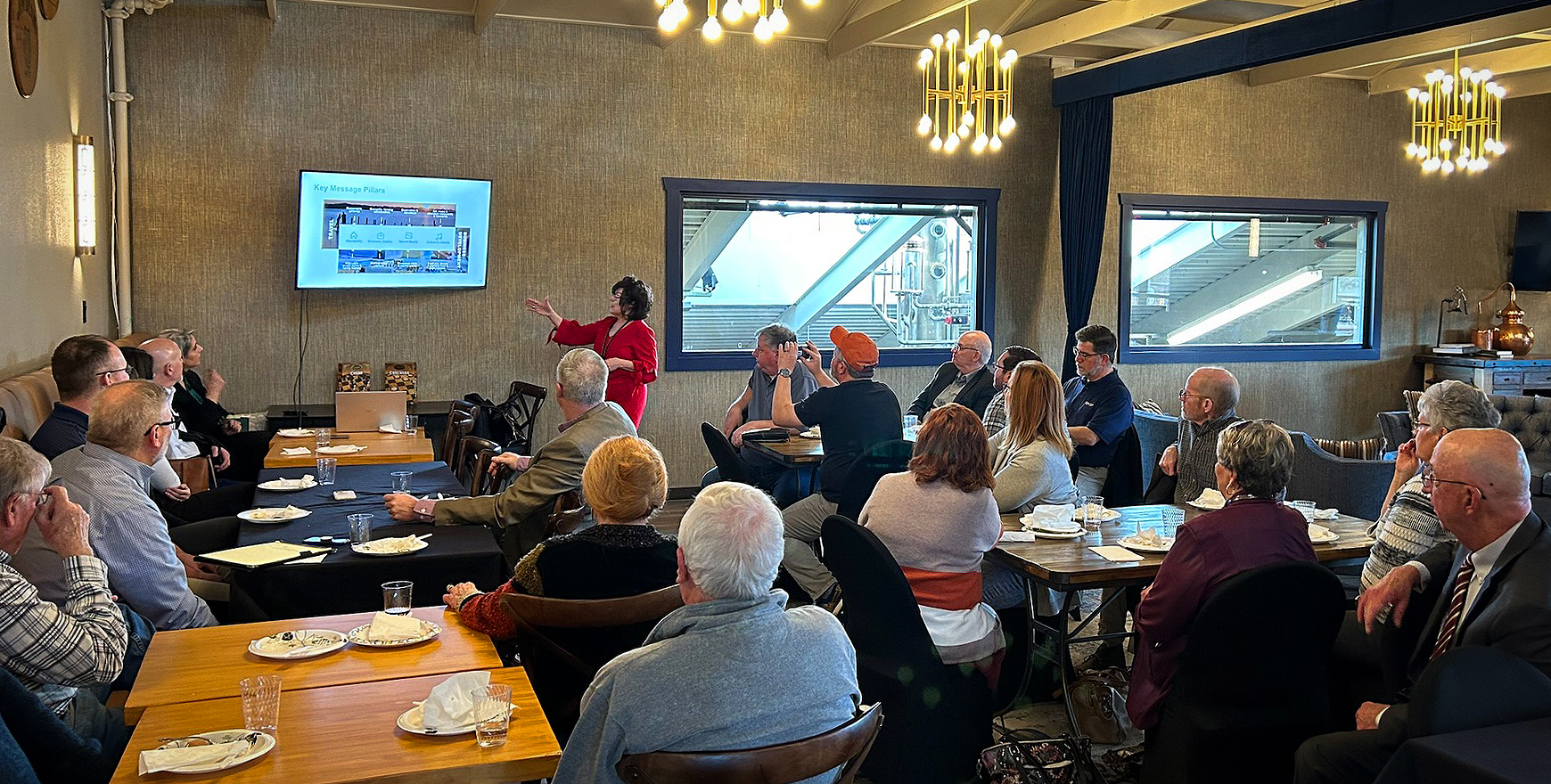For the first time since the pandemic, the Clarke County Development Corporation (CCDC) held their annual CEO luncheon. After the February CCDC board meeting, members of the development corporation along with a local and business leadership gathered at Osceola’s Revelton Distillery to convene on the state of business in Clarke County, Iowa.
With a quick overview of recent updates in the county, CCDC Executive Director, Bill Trickey provided a snapshot of active local business developments as well as status updates on activities directly impacting the future of business in Osceola and Clarke County.
“The business environment in Clarke County continues to improve,” said Trickey. “Strong demand in the Industrial Community along with the development of our training center and a strong business infrastructure is making the future look bright.”
He went on to say the demand for workforce housing and the development of that workforce continues to be a focus for the Development Corporation. With multiple new housing developments in the works, along with builder incentives, the base for a strong workforce continues to strengthen.
“Local employers will continue to see increased strength in housing options and workforce support as these projects some to completion in the next year-or-so.” Trickey said.

Special guest speaker, Debi Durham, Executive Director of the Iowa Economic Development Authority (IEDA) and Iowa Finance Authority continued with business development and activity updates from a state level and provided information on how the Governor and the State are executing on plans to support a variety of business sectors.
“Our focus has been our core competencies and the integration of technology into the future of business in our state,” said Durham, proceeding to illustrate how Iowa’s agriculture and manufacturing bases benefit from strategies focused on advanced manufacturing and bioscience innovations.
She went on to add that Iowa, for the first time in decades, surpassed Connecticut and other states to lead the Finance and Insurance sectors in terms of percentage of GDP.
“These advances didn’t happen in a vacuum,” said Durham. “Building a strong, educated workforce and future-ready infrastructure will be the foundation we all grow on.”
While overall state employment numbers still demonstrate slow recovery from the pandemic, recent census and updated monthly reporting shows Clarke County’s efforts with workforce housing, training, and more continues to keep local growth on a positive course.
“Infrastructure and technology are at the core to future progress,” said Trickey.” As the state continues to develop and focus on the integration of tech throughout the ag, manufacturing, finance, and insurance sectors, more opportunities for our area will continue to show themselves.”
The meeting closed out with a Q&A from those in attendance. A strong conversation about tech and rural access to high-speed internet service became a dominant part of the conversation. Durham asked those using rural internet to reach out directly so she and the IEDA, along with other state organizations could continue to develop strategies around their needs and address them as “high-priority.”
“We’re continuing our work to deepen and expand tech into other sectors as well as strengthen rural infrastructure,” Durham said. “Conversations like this are how we pivot to effectively address the needs of all of our businesses and residents.”

